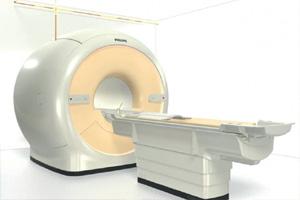
May 16, 2012 — Philips Healthcare has established a five-year agreement with St. Joseph’s Hospital and Medical Center in Phoenix to pursue research to help accelerate the advancement of magnetic resonance imaging (MRI) technology. The research will take place at the Barrow Neurological Institute at St. Joseph’s, one of the top neurological medical centers in the world and widely considered to be a top research facility for the development of new MRI acquisition methods.
The research team, comprising scientists and researchers from Philips and Barrow, will focus the majority of their work on developing new neurological MRI applications. In particular, one goal is to develop technologies that can significantly accelerate MRI scans, leading to a substantial reduction in both the scan’s duration and cost.
“Our hope is that this research partnership will result in rapid MRI technology improvements, meaning faster and less expensive scans for patients around the world,” said Jim Pipe, M.D., director of neuroimaging research at Barrow Neurological Institute and inventor of Propeller imaging technology, which is called MultiVane within Philips. This technology, available on all commercial MRI scanners and widely used around the world, measures a patient’s movement during an MRI scan and subsequently corrects that motion to produce sharper and more accurate images.
As part of the five-year agreement, Philips will install its Ingenia 3.0T MRI scanner in the Institute’s research lab. Ingenia is the first fully digital MRI system, offering digital signal acquisition and processing directly at the patient. Digitizing the signal directly in the radio frequency (RF) receive coil nearest to the patient and transferring and processing the signal in digital form throughout the imaging chain, results in an improved signal-to-noise ratio and facilitates the delivery of crisp image clarity to help clinicians make informed decisions. The digital platform also allows for the integration of other measurements as well as image capture and reconstruction technology advancements that better remedy motion-induced image disturbances.
For more information: www.healthcare.philips.com


 February 13, 2026
February 13, 2026 









